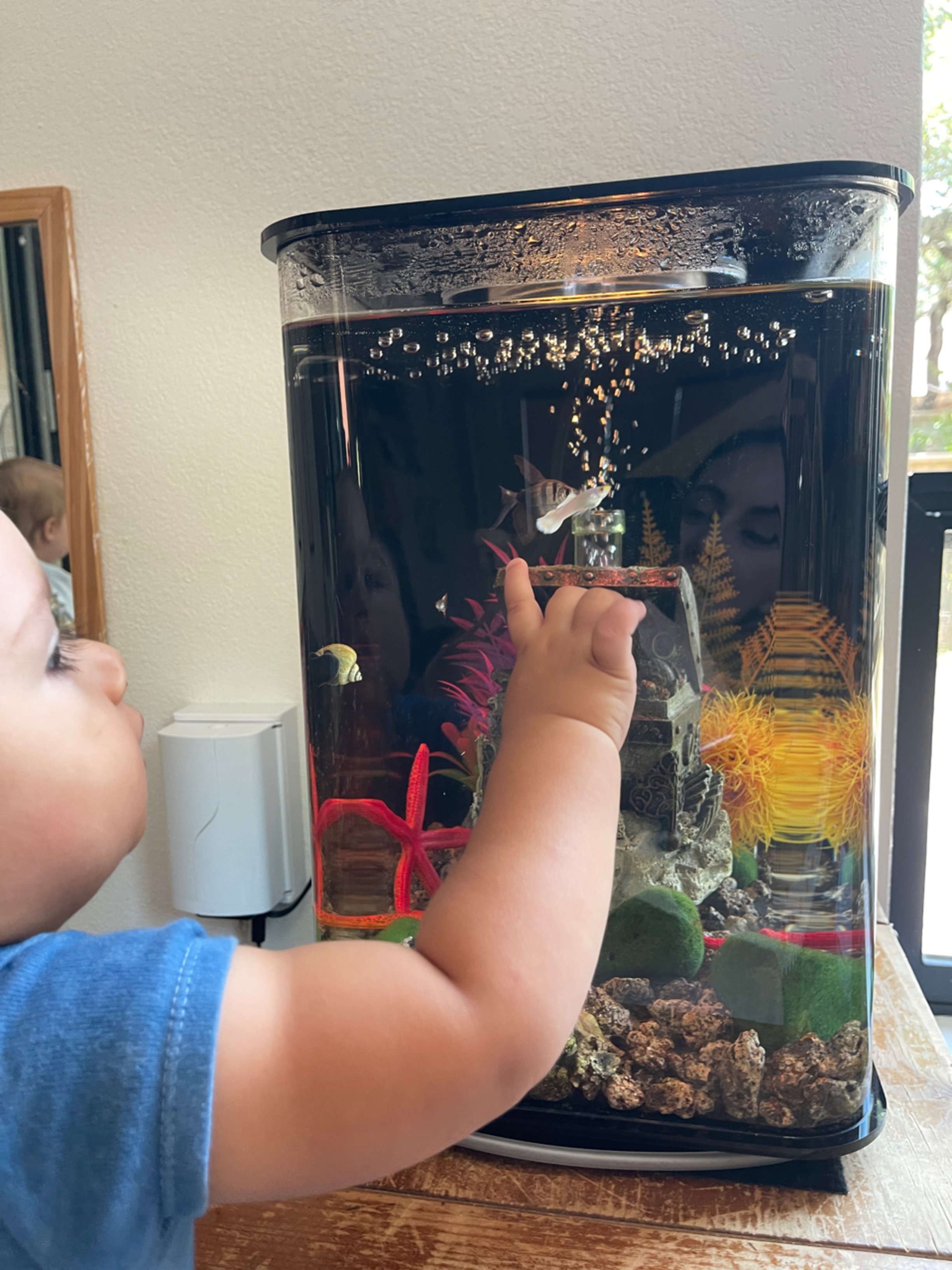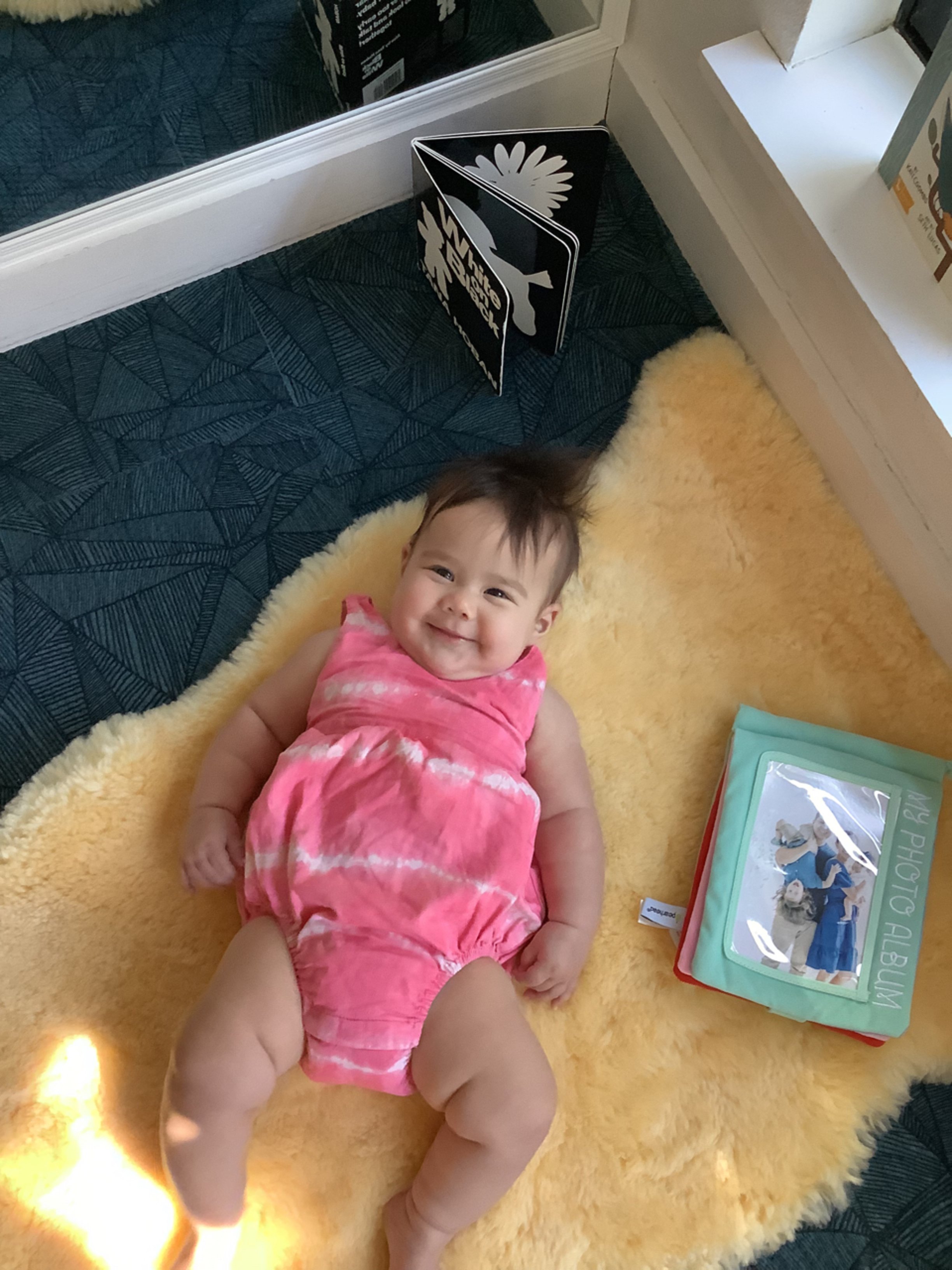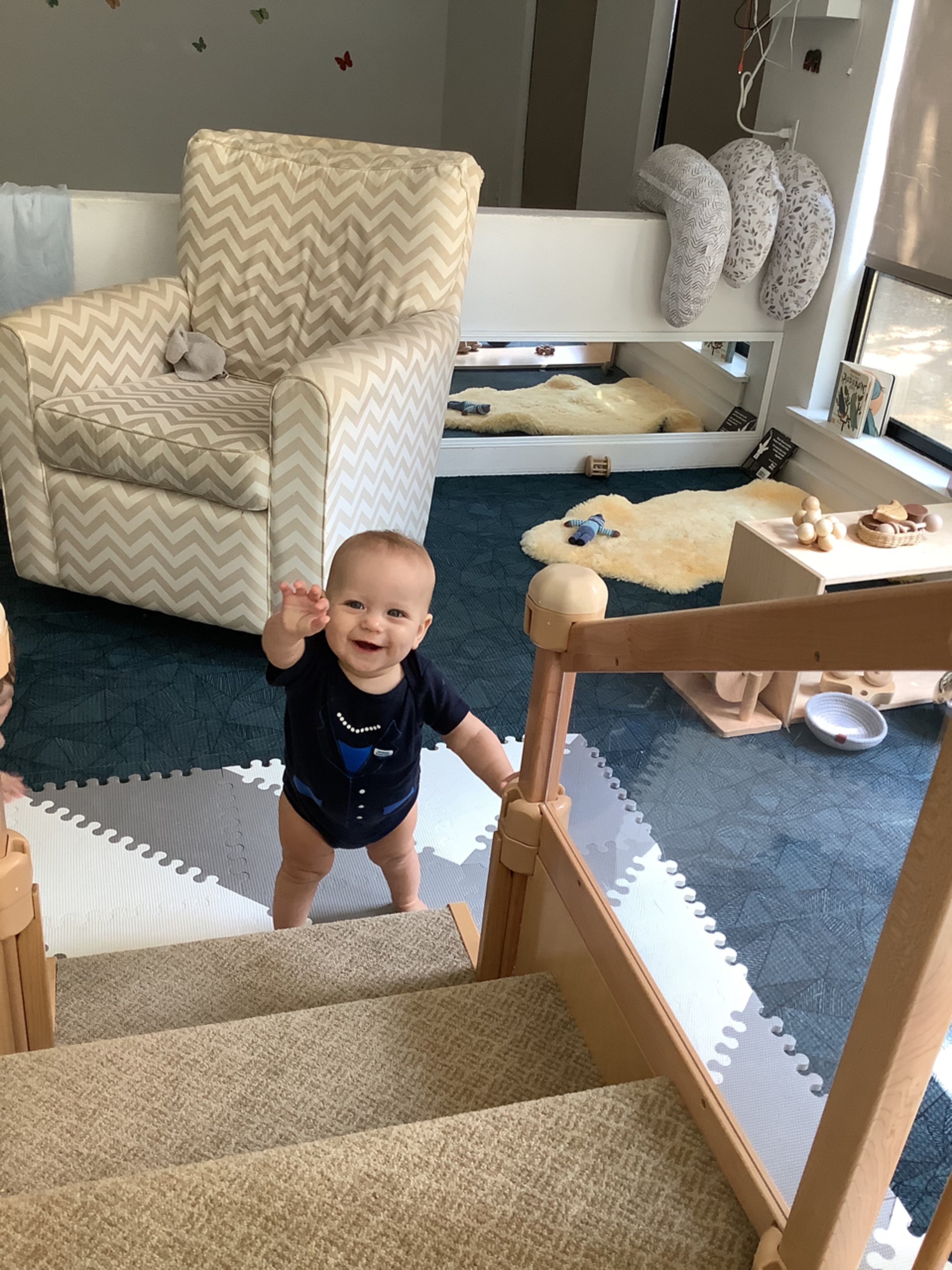NIDO
The Nido (Italian for “nest”) program provides quality care for a maximum of 8 infants, ages 8 weeks to 18 months. Our Montessori Infant community provides a safe, nurturing environment designed to support your baby’s earliest stages of growth and development. With gentle guidance, we foster independence, movement, and exploration, respecting each child’s natural rhythm. From language-rich interactions to opportunities for purposeful movement, our program is thoughtfully prepared to encourage curiosity, trust, and connection. Families are partners in this journey, as we work together to build a strong foundation for lifelong learning.
Benchmarks of our Infant Program
Benchmarks are a series of skills a student will acquire over the course of their time in a program. Every child advances according to their own developmental timeline, which is a concept at the heart of the Montessori approach. It is normal for children to learn in spurts and have periods of time where the acquisition of certain skills take precedence over others. We have established these benchmarks to communicate the work that is done in our classrooms. These skills represent concepts that have been introduced and mastery will vary by individual. Many of the skills listed here are introduced in our infant programs with the expectation that children will gain mastery over time.
Care of Self
Participates in dressing and undressing: taking off shoes and socks, putting arms and legs in clothing, Velcro, zippers, putting on a hat, etc.
Introduction to toileting: stand-up diapering and introduction to a potty chair
Montessori floor beds
Hand washing
Drinking from an open glass
Using utensils
Pouring water from a pitcher
Opening and closing containers
Care of the Environment
Treasure baskets: exploring common household items - kitchen items, bath items, brushes, etc.
Wiping surfaces, cleaning up spills
Setting the table
Clearing the table
Replacing work on the shelves
Watering plants
Rolling a work mat
Putting away belongings
Psychosensory
Gross motor
Floor time
Playscape
Low furniture for pulling oneself up
Push wagons
Ride-on vehicles
Ball basket
Fine Motor
Mobiles to support motor development
Grasping work supporting palmar, raking, radial digital, pincer grasps
Imbucare boxes
Sensory
Texture exploration: fabric basket, ball basket, etc.
Sound shakers
Water blocks
Sensory tubes
Mobiles to support ocular development
Language
Sportscasting
ASL signs
Themed models (nomenclature objects): animals, plants, household objects, etc.
Simple requests
Singing and movement
Photo realistic books
Puzzles
Math
Counting as sportscasting (1-3)
Sequence recognition as part of daily routines
One-to-one correspondence
Pattern recognition



